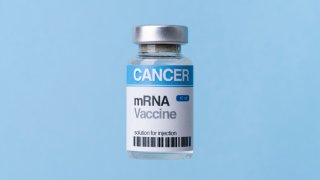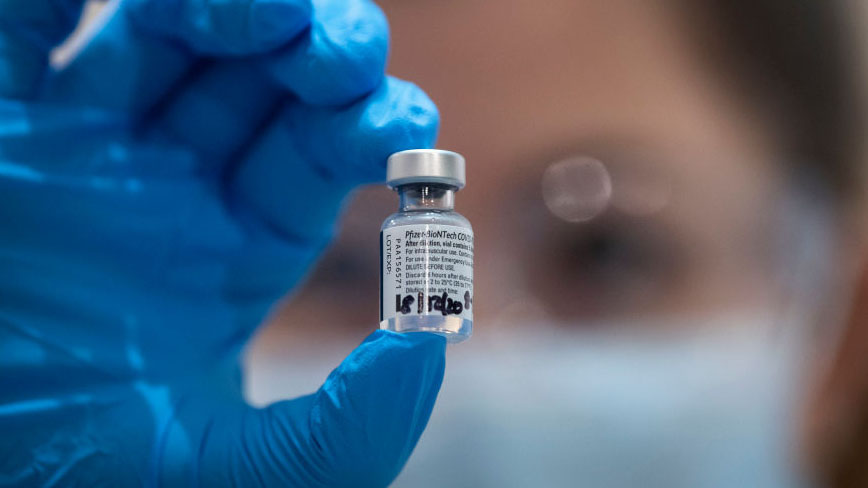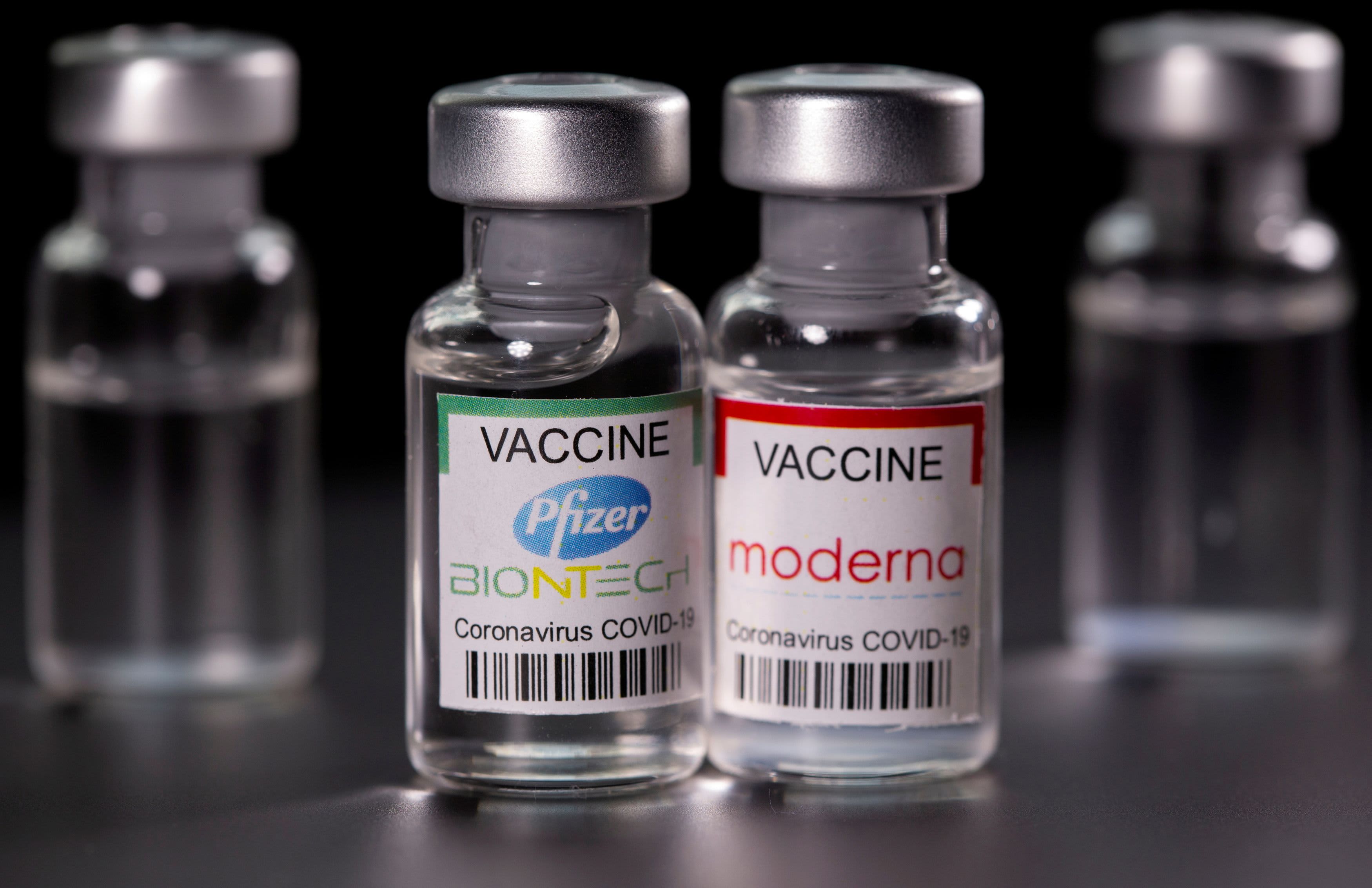
An experimental cancer vaccine combined with immunotherapy cut the risk of death from melanoma or a recurrence of the disease by 44%, pharmaceutical companies Moderna and Merck announced Tuesday.
The personalized mRNA vaccine, the same technology used in some COVID-19 vaccines, combined with the immunotherapy Keytruda led to the significant improvement in patients with stage 3 or stage 4 melanoma who had had surgery and who had a high risk of recurrence.
US and World News
"Today's results are highly encouraging for the field of cancer treatment,” Stéphane Bancel, Moderna's chief executive officer, said in a statement. "mRNA has been transformative for COVID-19, and now, for the first time ever, we have demonstrated the potential for mRNA to have an impact on outcomes in a randomized clinical trial in melanoma.”
Get Tri-state area news delivered to your inbox. Sign up for NBC New York's News Headlines newsletter.
The companies plan to begin the next phase of the study in 2023 and expand its use against additional kinds of tumors. The goal is truly individualized cancer treatments for patients, Bancel said.
The companies have not yet published the full data from the trial. They said that they plan to share the results at an upcoming oncology medical conference and with health officials.
Serious adverse events related to the treatment occurred in 14.4% of patients who received both the vaccine and immunotherapy and in 10% of patients who received just the immunotherapy, according to the statement from the companies.
Dr. Dean Y. Li, the president of Merck Research Laboratories, called the results an important milestone in the collaboration between Moderna with its expertise in mRNA and Merck and its immuno-oncology.
Personalized cancer vaccines are designed to prime a patient’s immune system so that it generates a response tailored to a tumor’s mutation signature, according to the two companies.
Messenger RNA or mRNA produces T cell responses also based on the unique mutation signature of a tumor, the announcement said.
The immunotherapy Keytruda meanwhile increases the ability of the immune system to detect and fight tumors.
The incidence of melanoma, the most serious of skin cancers, is on the rise, with the Centers for Disease Control and Prevention reporting it has doubled in the last 30 years in the United States. In 2018, 83,996 new cases of melanoma were reported, according to the CDC.
According to the Melanoma Research Alliance, 99,780 people in the U.S. are expected to be diagnosed in 2022 and 7,650 are expected to die. A large majority of deaths from skin cancer are a result of melanoma.
Merck and Moderna say they are sharing the costs of developing the mRNA vaccine and profits.





